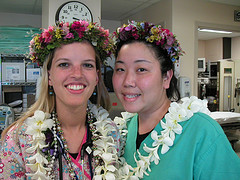 When traveling to Hawaii you don’t really have the same health and safety concerns you would have if you were traveling to Nicaragua or Africa. That said, it doesn’t mean this area of traveling planning should be overlooked. You never know when you suddenly become ill or injure yourself while swimming with sharks. As such, its always good to have a basic understanding of how the medical industry works here should something happen. After all, they are called accidents for a reason.
When traveling to Hawaii you don’t really have the same health and safety concerns you would have if you were traveling to Nicaragua or Africa. That said, it doesn’t mean this area of traveling planning should be overlooked. You never know when you suddenly become ill or injure yourself while swimming with sharks. As such, its always good to have a basic understanding of how the medical industry works here should something happen. After all, they are called accidents for a reason.
Health Standards
The hospitals on the main island of Honolulu have the biggest and best hospitals These hospitals have the most up to date technology and the best specialist of all of the islands. The neighboring islands hospitals are smaller and tend not to have a large number of specialists. Depending on how bad you are hurt or whats wrong with you, you may need to make your way to Honolulu as soon as possible.
The hospitals in Hawaii meet all US standards for care and health regulations.
Walk-in Clinics
There are a number of walk in clinics all over the Hawaiian islands. These walk in clinics can easily be found in major tourists areas without a problem. If you happen to find yourself outside of these areas, you may have to ask around for the closest one.
These walk in clinics are perfect for non-emergency care. They are ideal places to visit for things like sunburns, food poising, general sickness, and allergic reactions.
A number of the walk in clinics in Hawaii will make appointments and some even offer in hotel room calls.
Backcountry Safety
The general rules of staying safe and healthy in the backcountry aren’t that much different in Hawaii. The only major thing worth noting is the possibility of getting Leptospirosis. You can catch Leptospirosis by swimming in freshwater pools with open wounds. Typically, Leptospirosis will causes flu-like symptoms; in rare cases it can be fatal; the incubation period can be from 2-30 days after exposure.